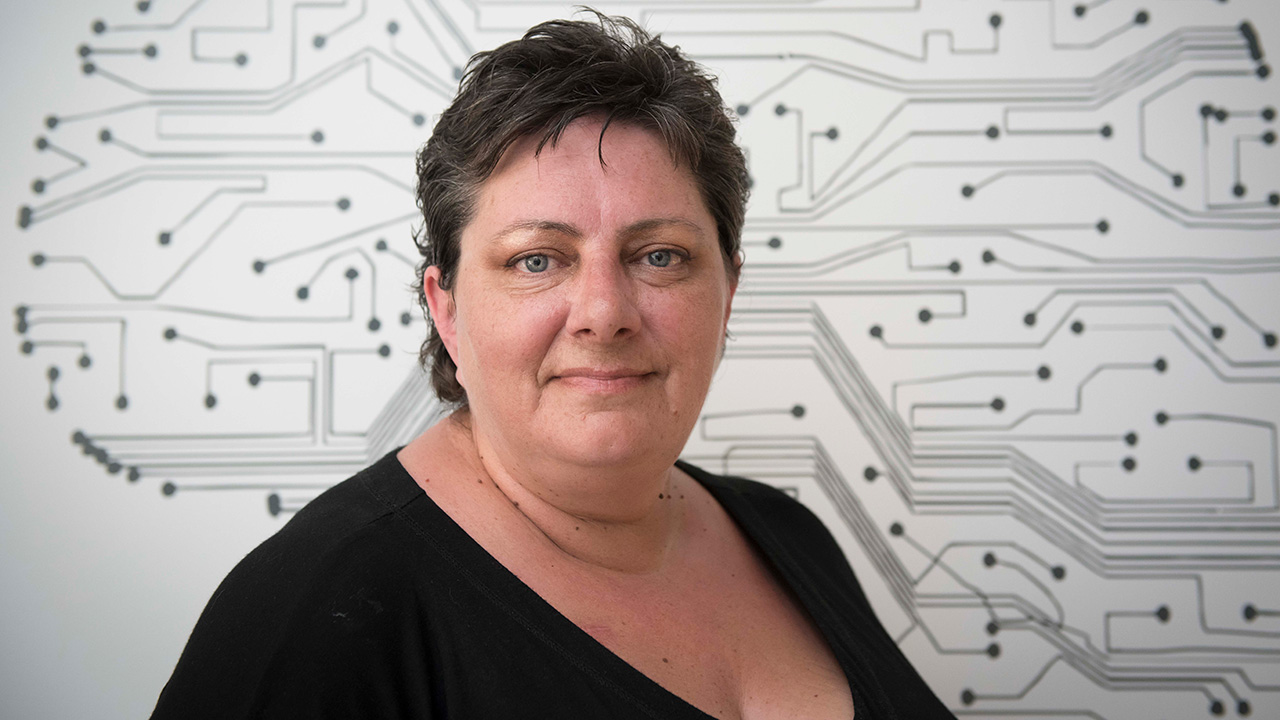First in Canada report: Promising results in deep brain stimulation trial for post-traumatic stress disorder
In a ground-breaking report, researchers at Sunnybrook’s Harquail Centre for Neuromodulation and Hurvitz Brain Sciences Program are highlighting promising early results of their first in Canada clinical trial investigating deep brain stimulation (DBS) for treatment-resistant post-traumatic stress disorder (PTSD).
The report has been published in Biological Psychiatry.
“This leading-edge approach is showing significant promise in our trial to date,” says Dr. Nir Lipsman, study investigator and director of the Harquail Centre for Neuromodulation at Sunnybrook. “Our initial patient is among the first in the world to have a successful outcome following DBS for treatment-resistant PTSD.”
Neuromodulation directly influences brain circuitry in some of the most common and challenging brain disorders of our time. This Phase I trial is investigating the safety of DBS for treatment-resistant PTSD.
DBS involves implanting electrodes that are connected to a small device — like a pacemaker — which send electrical pulses to help regulate abnormal activity occurring in a specific brain pathway. DBS has been used in the treatment of symptoms of Parkinson’s disease, essential tremor and obsessive-compulsive disorder in Canada and around the world.
PTSD impacts more than 3 million Canadians and may occur in individuals who have experienced traumatic events including accidents, abuse or military combat. Patients may suffer from anxiety, nightmares, and flashbacks — symptoms which can be long-term and associated with a decreased quality of life. Up to a third of patients diagnosed with PTSD do not respond to conventional treatments such as psychotherapy and medication, which is known as treatment-resistant PTSD.
Serena Kelly is the first patient in Canada to participate in the trial after nearly two decades of suffering with treatment-resistant PTSD, a result of years of multiple sexual assaults, abuse by a former partner, and personal loss.
More than a year since the study began in February 2019, Serena says her quality of life has “improved dramatically.”
“Intrusive thoughts and images no longer haunt or keep me awake at night. After decades of avoiding sights and sounds that trigger panic or fear, I am now able to face them directly,” says Serena.
For the first time in years, Serena has been able to drive on her own again. She has also returned to university and is working towards a degree in psychology.
“Participating in the DBS for PTSD clinical trial gave me my life and independence back,” explains Serena. “Without the hard work and dedication of the clinical trial team I would not be where I am today, and I believe the research they are doing is invaluable and potentially lifesaving.”
Sunnybrook researchers are the first in the world to target an area of the brain called the ventromedial prefrontal cortex (VM PFC) using DBS for PTSD. The VMPFC is known to play a role in PTSD as it regulates emotion and has been linked to mood, depression, and anxiety disorders. Focusing on this area of the brain is the result of preclinical research pioneered by Dr. Clement Hamani, lead author of the article and preclinical lead at Sunnybrook’s Harquail Centre of Neuromodulation.
“For patients who have tried conventional treatments without success this trial provides hope for the future as we continue to investigate innovative treatments for PTSD,” says Dr. Hamani. “It’s important to note that even with the encouraging results of this report, that data are not over-interpreted. We will continue future studies with larger sample sizes needed for further examination of DBS for PTSD.”
“Research has shown patient response to DBS varies. Some individuals may respond to treatment and others may not, while some patients may find symptoms improve slowly over time,” says Dr. Peter Giacobbe, psychiatrist and clinical lead at the Harquail Centre. “Continued investigation will help researchers better understand brain circuitry and in turn, further develop novel treatment solutions for patients living with treatment-refractory PTSD.”
In 2018, Sunnybrook researchers received a $1.25 million funding grant through the Government of Canada’s Veteran and Family Well-Being Fund to support the first neuromodulation program for PTSD in the country at the Harquail Centre for Neuromodulation at Sunnybrook, to innovate future treatments for PTSD. Sunnybrook is Canada’s largest war veterans’ hospital.
“We are at the forefront in the pursuit, development and discovery of novel, direct-to-brain therapies that may also be personalized for patients’ needs, with the hope of helping these vulnerable patients and their families improve their quality of life in the future.” says Dr. Lipsman.
The study was generously supported by the Dana Foundation and Veterans Affairs Canada.
Philanthropic investment has also driven Sunnybrook’s advances in neuromodulation as well as innovative brain and mental health research with thanks to lead donors including the Harquail Family through the Midas Touch Foundation.
Media contact:
Jennifer Palisoc
Communications Advisor
416-480-4040
jennifer.palisoc@sunnybrook.ca






